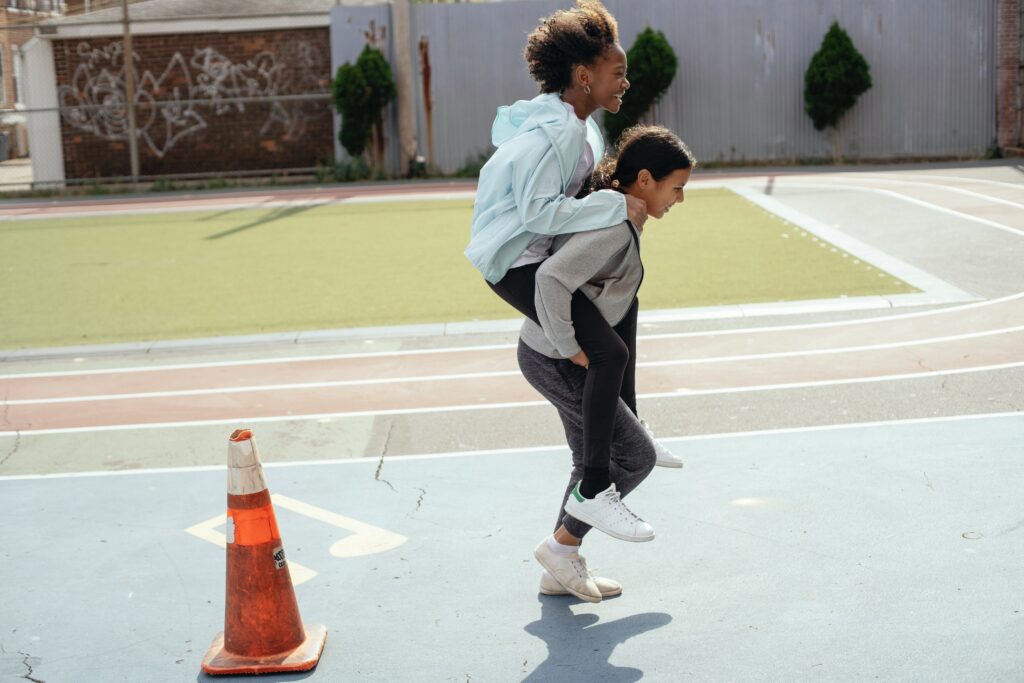Research in Physical Education

This module will provide student teachers with opportunities to investigate and learn from their practice and derive ideas and conclusions that enrich and advance their understanding of their own pedagogical and reflective practices and enhance their teaching. The work will have an explicit focus on physical education practice and research.
Students will complete a small research study drawing on input related to quantitative and qualitative approaches to research being used in the social sciences. An understanding of research methods is integral to ensuring we conduct research in an effective and ethical manner.
Suggested Number of ECTs
10
Online, hybrid and/or offline
Theory based
Supported independent work
Dimensions Core
- D1S1, D1S2, D1S3, D1C1
- D2S1, D2S2, D2S3, D2S4, D2S5
- D3K1, D3S1, D3S2, D3C1, D3C2, D3C3
- D4K1, D4S1, D4S2, D4S3, D4C3
D5C1, D5C2, D5C3 - D5C2, D5C3
Dimensions Extended
- D1K5, D1K6, D1K7, D1C2, D1C3, D1C
- D2K2, D2K3, D2K4, D2K5, D2S6, D2S7, D2S8, D2C2, D2C3
- D3K2, D3K3, D3S3, D3S4, D3S5, D3S6
- D4K2, D4S4, D4C4, D4C5
D5K1, D5S1, - D5S3, D5C4, D5C5, D5C6D5S1, D5S2, D5S3, D5C4, D5C5
Indicative Content
Definition of research methods
Engaging with confidence in ethical research
Developing a research question
Literature search, identifying relevant literature and using referencing software
Writing a literature review
Gathering and analysing data
Compiling a research project, dissertation, extended essay or report
MODULE LEARNING OUTCOMES
- LO1: investigate an aspect of primary physical education and conduct a study ethically and systematically;
- LO2: write a critical research project/dissertation/extended essay/report;
- LO3: explain some of the key principles, concepts and methodologies underlying the process of research in physical education;
- LO4: engage critically and analytically with the literature to underpin and inform a research question;
- LO5: collect data from multiple sources and analyse the data in response to the research question;
- LO6: lshare the findings and learnings to contribute to future practice.
Teaching modules

This module provides insights into Active School models and conceptual approaches to promote physical activity in school settings, with a focus on active classroom learning. First, teacher students will brainstorm about how a school day can be more physically active for the students, before models of an Active School will be presented. Then, active breaks and active learning will be presented as a main pillar of an active classroom and teacher students will be invited to prepare active classroom activities. Finally, teacher students will discuss and prepare ways to assess and present a school when it comes to their movement-friendliness. All tasks for the student teachers will be implemented in the form of group work.
The moving school
– What makes a school an Active School?
– Models of an Active School
What aspects of physical activity promotion and physical activity education are used in school?
Structure of the module:
- Theory and practice of the moving school
- Moving lessons as a central block of a moving school
- Evaluation of the moving school
What is Movement based Education?
Framework features of the "Active Schools”
- Content-related features of the "Active Schools”
What is Movement based Education?
Moving lessons:
- Physical activity breaks
- Learning in motion
- Dynamic sitting
- Relaxation periods
- Movement projects
Movement-friendly school
The moving school: examples of implementation - checklist "Movement-friendly school”
Movement-friendly school
Examples of implementation
- moving lessons
- voluntary school sport
- compulsory physical education
- health and physical activity promotion programmes
- school environment and free time
- school events
Physical Activity Friendly School
School development
– What makes a school an Active School?
– Models of an Active School
Physical Activity Friendly School
- Presentation "clever move” - Moving School and Maison Relais
- Moving Schools Award (Moving Schools Award)
Theory-based seminar including lecture and group work (discussion and presentation).
Group work:
1. Groups discuss and present how physical activity can take place in a school
setting during the school day;
2. Groups prepare and present examples of active breaks and active learning in an
active classroom;
3. Groups discuss and prepare how a school can be evaluated regarding the
integration of physical activity throughout the school day.